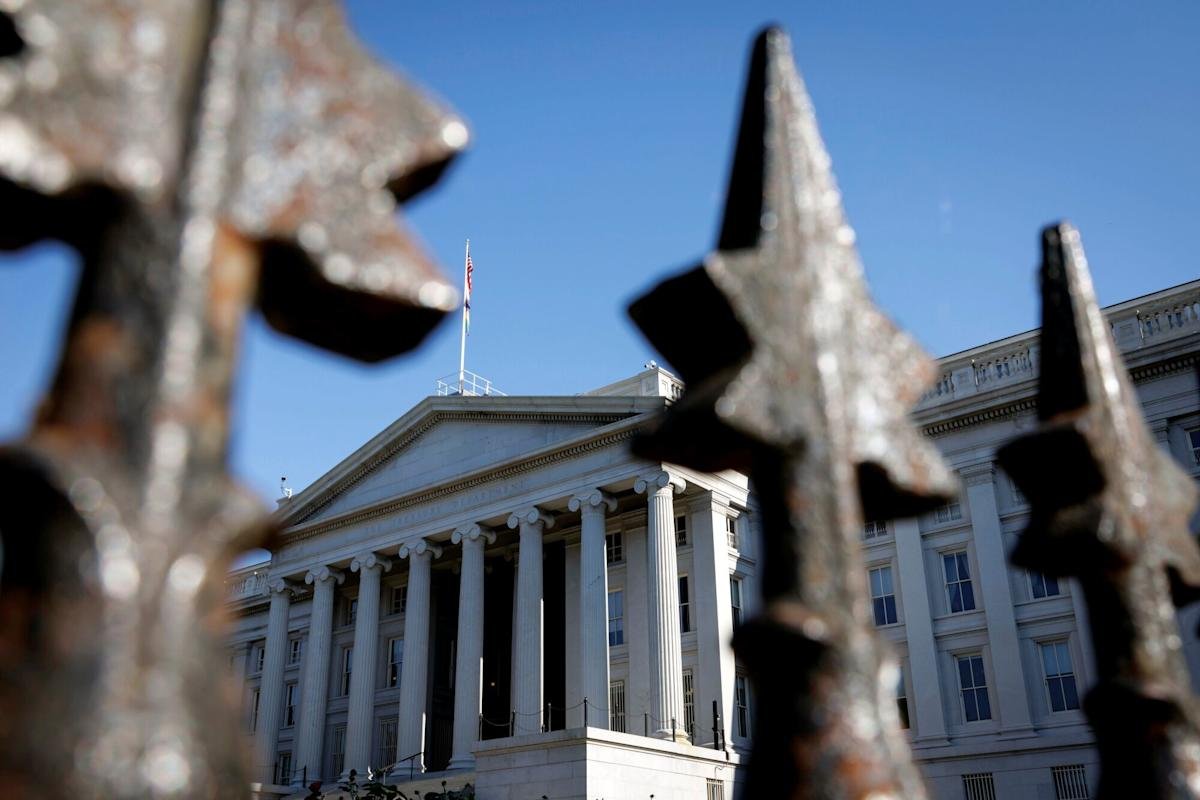(Bloomberg) — A low-profile hedge fund executive who’s among the dozens of disciples tracing their roots to the late investing legend Julian Robertson is poised to become the face of the Trump administration’s sanctions strategy.
Most Read from Bloomberg
If confirmed after his Senate confirmation hearing on Thursday, John Hurley will lead the Treasury Department’s terrorism and financial intelligence arm, a pivotal post that tackles everything from terrorist financing to money laundering and drug cartels.
The role, which oversees some 1,000 employees, has gained prominence in the past decade as Washington ramped up sanctions as a preferred tool to target adversaries. Moves by TFI, as the unit’s called, have particular relevance to commodities traders as any hint of the US adjusting restrictions on oil-rich nations like Russia, Iran and Venezuela can swing the market.
“The TFI role is one of the most powerful positions in the US government,” said Justyna Gudzowska, a former Treasury official who’s now executive director of The Sentry, which monitors corruption and human rights issues. “Although the under secretary does not command an army, he has a powerful arsenal of economic statecraft tools at his disposal.”
As they’ve increased in prevalence, sanctions in recent years have a mixed record in achieving US foreign policy goals. They’re credited with bringing Iran to the negotiating table for the 2015 nuclear deal and costing Russia hundreds of billions of dollars after its full-scale invasion of Ukraine. But they’ve often had adverse effects, inflicting greater pain on civilians while agitating allies opposed to their unilateral use.
In his hearing, Hurley touted the “huge success” of the first Trump administration’s maximum pressure strategy on Iran. He emphasized the importance of engaging with international allies and banks to properly implement any restrictions, and said he’d tighten focus on Chinese entities that could be exploiting critical US technology.
Tiger Grand Cub
After graduating with honors from Princeton, Hurley served in the First Gulf War, where he oversaw battlefield communications systems, later earning a Bronze Star. A Stanford MBA propelled him into the world of finance, first at Fidelity Investments and then Bowman Capital Management, which became one of the West Coast’s top tech hedge funds under Tiger Management veteran Lawrence Bowman.
In 2002, Hurley founded Cavalry Asset Management — a nod to his military service — making a name for himself with early wagers on many of the so-called Magnificent Seven tech stocks, such as Microsoft Corp. Alphabet Inc., Apple Inc. and Nvidia Corp.
Like many Tiger Cubs and Tiger Grand Cubs — as Robertson’s proteges are known — he favored concentrated long-term bets over the multi-strategy style in vogue today, according to Michael Tierney, a former investor who worked with Hurley at Bowman and Cavalry.
Three years ago, Hurley was tapped for the inaugural board of the America’s Frontier Fund — an effort backed by billionaires including Peter Thiel and Eric Schmidt to support tech breakthroughs deemed of national interest.
“John’s an extremely intelligent guy,” said Kurt Lanzavecchia, an Austin-based money manager who worked for Hurley at Bowman and Cavalry. “His secret sauce was analyzing the entire supply chain to understand who benefits from changes in technology.”
A Treasury spokesperson said Hurley’s successful track record as a market practitioner, decorated combat veteran, supply chain expert and academic makes him well qualified for the role. Hurley didn’t respond to a request for comment.
Nominees must divest holdings that can potentially pose a conflict of interest, usually within 90 days of confirmation although longer for more complex assets. Hurley could sell his stake in Cavalry or follow the example of Treasury Secretary Scott Bessent, who said he’d wind down his hedge fund Key Square Capital Management.
China Lens
Unlike the job’s most recent occupants — Sigal Mandelker, Justin Muzinich, Brian Nelson and Brad Smith — Hurley has no formal legal training nor is he from the tight-knit world of professionals focused on countering illicit finance.
But his experience in Asia — Cavalry had offices in Taipei and Hong Kong — could help him see national security issues through the lens of China, which many Trump officials have pegged as Washington’s biggest long-term threat. Hurley has also been part of informal “track two” diplomacy initiatives between retired US and Chinese military officials.
Among the core challenges that recent US administrations have wrestled with is calibrating the right balance between leveraging the tools of economic warfare while maintaining the dollar’s status as the global reserve currency, with the Chinese yuan seen as one alternative.
Last year, China was the second-most targeted jurisdiction for US financial sanctions and faced more entity-based export controls than any nation, according to an analysis by the Washington-based Center for a New American Security.
Since President Donald Trump’s return to office, Washington has signaled its desire to cut off Iran’s oil exports, set a deadline for Chevron Corp. to halt its Venezuela operations and quietly tightened restrictions on Russia’s energy industry. His administration rattled markets in recent days by unveiling tariff rates of up to 50% on dozens of countries.
Bloomberg News reported last month that the president’s advisers are sketching out potential Russia sanctions he could lift or tweak — including the oil price cap — if there’s progress in talks with Moscow on ending its war in Ukraine.
Hurley echoed that sentiment on Thursday when asked about seeking to cease the fighting.
“If President Putin is resisting, I’d expect the president to look to me and the rest of the interagency to apply more pressure,” he said. “And to the extent that we’re heading in a better direction, they’ll look to us to potentially relieve pressure.”
–With assistance from Bill Allison.
(Updates with Hurley’s comments in sixth and final two paragraphs.)
Most Read from Bloomberg Businessweek
©2025 Bloomberg L.P.





